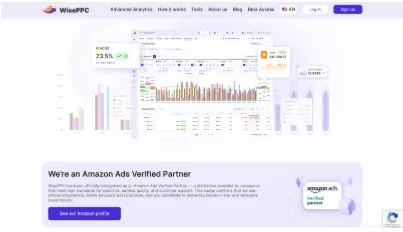What Features Should Shipping Management Software Have?
In today’s competitive logistics and e-commerce landscape, efficiency isn’t just an advantage—it’s a necessity. Companies that ship goods, whether small e-commerce retailers or large-scale distributors, rely on streamlined processes to keep customers happy and costs under control. This is where shipping management software plays a pivotal role.
The right solution can reduce errors, cut costs, speed up fulfillment, and give businesses the visibility they need to make smart decisions. But with so many platforms available, how do you know which features truly matter? Let’s break down the essential features every business should look for when evaluating shipping management software.
- Multi-Carrier Integration
At the heart of great shipping management software is its ability to integrate with multiple carriers. Businesses rarely rely on just one shipping provider—choosing the most cost-effective and reliable carrier for each shipment is crucial.
- Why it matters: By comparing real-time rates across carriers like UPS, FedEx, DHL, and USPS, businesses can save significantly on shipping costs.
- Key benefit: Avoids vendor lock-in, ensuring flexibility and cost optimization.
- Pro tip: Look for software that not only integrates with global carriers but also supports regional and local providers for broader coverage.
- Real-Time Rate Comparison
Customers expect competitive shipping options at checkout. Real-time rate comparison ensures that businesses can pass on accurate costs without inflating prices or eating into margins.
- Why it matters: No customer likes unexpected charges. Transparent shipping costs reduce cart abandonment.
- Key benefit: Businesses can show multiple delivery options (standard, expedited, overnight) and let customers choose the one that best fits their budget and timeline.
- Automated Label Generation
Printing and attaching labels is a tedious but critical task. Modern shipping management software automates this by generating carrier-compliant shipping labels with a single click.
- Why it matters: Eliminates human error from manual data entry.
- Key benefit: Saves time while reducing mislabeling risks, which can lead to costly returns or delays.
- Pro tip: Some solutions even allow bulk label printing for large order volumes, an essential feature for growing e-commerce stores.
- Order Management and Syncing
If your shipping solution doesn’t play well with your sales channels, it’s not doing enough. Seamless integration with e-commerce platforms (like Shopify, WooCommerce, Magento, or BigCommerce) and marketplaces (like Amazon and eBay) ensures orders sync automatically.
- Why it matters: Manual uploads waste time and increase error risks.
- Key benefit: Centralized order tracking across all platforms prevents missed or duplicated shipments.
- Inventory and Warehouse Management Integration
A robust system should go beyond shipping alone and tie into inventory and warehouse operations.
- Why it matters: When inventory data and shipping are connected, stockouts and overselling are minimized.
- Key benefit: Staff can pick, pack, and ship orders faster with synchronized data.
- Pro tip: Look for barcode scanning and warehouse routing features for extra efficiency.
- Tracking and Notifications
Customers today expect to know exactly where their package is at any given moment. Shipping management software should provide real-time tracking numbers and automatically send notifications to customers at key milestones.
- Why it matters: Reduces customer inquiries like “Where’s my order?”
- Key benefit: Enhances customer experience and builds trust.
- Bonus: Some platforms let you customize tracking pages with your branding, turning a functional update into a marketing opportunity.
- Returns Management
Returns are an unavoidable part of doing business, especially in e-commerce. A good shipping platform makes returns easy for both the business and the customer.
- Why it matters: Complicated return processes discourage repeat customers.
- Key benefit: Automated return label creation and tracking simplifies operations and improves customer loyalty.
- Reporting and Analytics
Data is one of the most valuable tools in logistics. Shipping management software should provide detailed insights into shipping costs, carrier performance, delivery times, and return rates.
- Why it matters: You can’t improve what you can’t measure.
- Key benefit: Analytics help identify trends, negotiate better carrier contracts, and optimize shipping strategies.
- Scalability and Customization
As your business grows, your shipping needs evolve. The software you choose should scale alongside you, supporting higher volumes and more complex shipping rules.
- Why it matters: Outgrowing your software means costly transitions later.
- Key benefit: Flexible rule-setting (like free shipping thresholds or country-specific restrictions) ensures smooth scaling.
- Cloud-Based Accessibility
Cloud-based shipping management software ensures teams can access the platform from anywhere, anytime.
- Why it matters: Remote accessibility supports distributed teams and global operations.
- Key benefit: Updates roll out seamlessly without needing on-site IT support.
- Customer Support and Onboarding
Even the best software comes with a learning curve. Strong customer support, onboarding resources, and training materials can make or break your experience.
- Why it matters: Businesses need responsive help when dealing with mission-critical logistics issues.
- Key benefit: Smooth onboarding minimizes downtime and helps teams get up to speed faster.
- Security and Compliance
Shipping involves sensitive customer data—names, addresses, and sometimes payment details. Protecting this data is non-negotiable.
- Why it matters: Data breaches erode customer trust and can result in legal consequences.
- Key benefit: Software that complies with industry standards (like GDPR or CCPA) ensures safer operations.
- Cost Control Features
Keeping shipping costs in check is a priority for businesses of all sizes. Some software platforms offer advanced cost-saving tools such as:
- Automated carrier selection based on best price and delivery time.
- Packaging optimization to avoid dimensional weight (DIM) fees.
- Consolidated billing for multi-carrier accounts.
- Multi-Location and International Shipping
If you ship globally or from multiple warehouses, your software should handle that complexity with ease.
- Why it matters: International shipping comes with customs, duties, and regulatory compliance challenges.
- Key benefit: Automated documentation and customs forms speed up cross-border deliveries.
- Integration with Accounting and ERP Systems
Shipping is just one part of the business puzzle. Integration with accounting platforms (like QuickBooks or Xero) and enterprise resource planning (ERP) systems ensures smooth financial and operational management.
- Why it matters: Manual reconciliation of shipping expenses is inefficient.
- Key benefit: Unified systems reduce errors and provide accurate cost tracking.
Final Thoughts
Choosing the right shipping management software isn’t just about ticking boxes—it’s about finding a platform that fits seamlessly into your operations and grows with your business. From multi-carrier integration and automated labeling to robust analytics and return management, the right features can save time, reduce costs, and improve customer satisfaction.
When evaluating options, think not only about what you need today but also about where your business will be in three to five years. A scalable, integrated, and user-friendly solution ensures your shipping operations remain a competitive advantage rather than a bottleneck.




